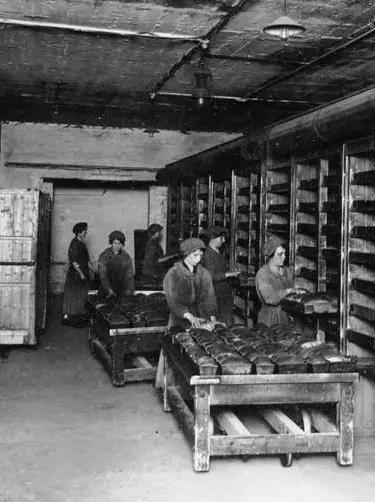For most people, baking is a fun hobby, a way to spend an afternoon or make dessert for their family. But for some, baking is not only a career but a lifestyle. In an industry filled with dedicated and talented workers, how can one rise above the competition? Whether you’re new to the game or looking to move up the food chain, these tips will help you sweeten the deal for potential employers!
The Bread and Butter
A resume is the epitome of first impressions. Good resume writing (cover letters are a whole different subject) will get you an interview, and good interview skills will get you a job. Employers want to know why they should choose you over someone else, and it is your job to tell them.
You must show that you take your work seriously. Working within a bakery requires tremendous amounts of care and attention to detail. As a baker, you need to follow strict food safety standards, and maintain a clean work area. A sloppy resume indicates a sloppy baker.
Hiring managers might comb through thousands of resumes, meaning they don’t devote much attention to the vast majority of the pile. This is your chance to step up, and provide an incredible resume that will have them coming back for seconds. Here are the resume objectives you should focus on.
Writing A Sweet Summary
The summary is the piece that the recruiters will taste test before reading your resume. While it must be clear and concise, don’t be afraid to make it personal and memorable!
Let’s take a look at two versions of a personal, professional summary:
Version A: Assistant Head Baker with experience in baked good production. Administered daily product order and supervised the team of bakers at ABC Bakery. A safety conscious and creative baker with experience in menu development.
Version B: Assistant Head Baker with 8+ experience in bread baking and pastry crafting. Administered daily product order and supervised the team of 5 bakers at ABC Bakery. Obtained consistent 100% food safety ratings. Developed 10 authorial pastry recipes used at several bakeries in New York. Ambitious and result-driven. Looking for further advancements to Pastry Chef or other similar positions.
Version B is better, right? But why is it better than Version A? Here are some secret ingredients:
1. Make use of numbers. Remember, HR and recruiters love numbers. You need to quantify your skills. If you are very experienced, show the years of experience. Especially if you apply for a senior position! Also, show the number of people you managed. You need to tell recruiters you are an experienced leader!
2. Illustrate your skills. Are you more than a baker? Of course! You might also have experience in menu development or customer service. Add a few lines to show your accomplishments. It will help you stand out, and give employers a better picture of who you are.
3. Add a personal touch to your resume. Okay, you are an assistant head baker now and you are looking for a new job! You can write a baker assistant’s resume, but show your ambition- you want to be a Pastry Chef! You need to let employers know your aspirations. Find a company that can offer you a career path!
Work Experience
Unfortunately, we don’t have a one-size-fits-all format. There are many types of bakers, so your resume should be formatted to fit your career history.
If you have a stable career progression, write a chronological resume. List your work history in reverse chronological order. State the most recent job first. Mention the company name, the period of employment, duties and responsibilities. If you were self-employed, we have some tips just for you!
When you write your duties and responsibilities, always start with action words. “Prepare”, “Supervise”, “Manage”, “Deliver”, and “Develop” are some good words to get you started. Also, add numbers to quantify your experiences. How many bakery assistants do you manage? How do you manage a production schedule?
Education
The good thing is, bakers are generally not required to have a college degree, a high school diploma should be enough. Usually, a baker masters his or her skills on the job, but there are many programs available at vocational or culinary schools.
If you have little work experience, listing education is a solid, professional resume builder. When you become more experienced, you can put less focus in this section.
Your Own Secret Ingredients
This section is a summary of your specific skills. Mention 7-10 of your key skills, including both hard and soft skills. Baker skills for your resume may be easy to list, but be specific and showcase you!
Not all baker jobs are created equal. Are you a commercial baker? Commercial bakers produce large quantities of cakes and pastries at high speed, so knowledge in machine operation is crucial.
Are you good at cake decorating? Cake decorating is where some bakers shine, and can be an eye-catching skill for many employers.
Moreover, have you obtained a certificate or license? Are you a certified decorator? Or a certified master pastry chef? Certifications show not only that you’re a proficient baker but that you’ve been recognized on an objective and official level.
You’ve read the recipe, now put those ingredients in the bowl!
There’s no universal formula for crafting a winning resume – you have to tailor your resume to showcase you, and to fit the job you want. Read the job descriptions carefully. Ask yourself why you would be a good fit for that role, and highlight your unique selling points. At the end of the day, you are competing against other bakers. If you want to secure an interview, you need to make a polished, professional resume that separates you from the pack.


